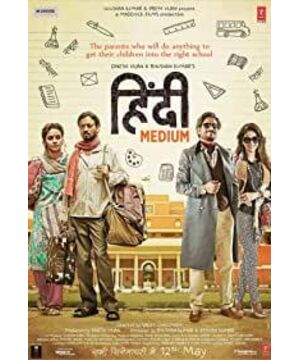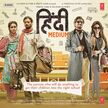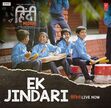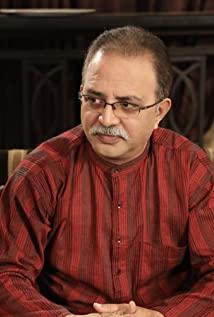There is a saying in China: Don't let children lose at the starting line.
Only when children receive a good education can they gain the first opportunity and advantage in the fierce social competition.
One cannot choose one's origin, but changing one's fate through education is the only possibility that many people can see.
Therefore, educational resources are really important.
In today's uneven distribution of educational resources, it has become more and more difficult to raise a child from a poor family .
School district housing, prestigious private schools, queuing up all night for enrollment forms, schools' written interviews for children, and written interviews for parents, these various news are not uncommon.
In an interview, Xiong Xuanang , the champion of liberal arts in Beijing's college entrance examination , published a classic truth about educational resources:
However, all of this is not Chinese characteristics, and it is also a country with a huge population base - India also has a similar reality.
The movie "Starting Line" tells the story of a middle-class couple who racked their brains to send their daughter to a prestigious school.
In recent years, many excellent Indian films have entered the public eye.
From "Three Silly Troubles in Bollywood" , "My God" to "Wrestling!" "Dad" is a good film that is both well-received and well-received.
What they have in common is their approach to social issues in the guise of comedy .
The movie "Starting Line" is also a masterpiece of this type. The English name of the movie "Hindi Medium" should be literally translated as "Indian Middle Class".
The clothing store owner Raj and his wife Mita are a typical middle-class Indian couple, and their daughter is about to go to school.
His wife, Mita, insisted that she must send her daughter to a prestigious school, but Raj was initially noncommittal.
Mitta felt that it was because they were not well educated that they were stuck in the middle class.
She doesn't want her daughter's future to be like theirs, so she can't be given the same education as theirs.
And good schools provide good English education, which in India is "not just a language, it's a class."
I believe these remarks also made many Chinese families feel the same way.
As the so-called "education determines destiny" , naturally the higher the class, the better the destiny.
So Raj was persuaded by Mitta that for the child to have a bright future, the two joined the race for the starting line without hesitation.
They had their sights set on Derry Grammar School, but there was no end to the line of applications just for admission, and many people came to lay the floor overnight.
After a long queue and complicated procedures, I still failed to register.
This picture is believed to be familiar to many people in the country.
The registration scene of a kindergarten in China
It turns out that this school only admits children who live in the school district , and parents have to undergo assessment and training , even conversation, clothing, etc. are also considered standards, not only written tests but also interviews...
In fact, these screening conditions are not directly related to children, the intention is just to screen the parents of the upper class.
For the sake of their children, the Raj couple had to spend a lot of money to move into a school district and be neighbors with the so-called upper class.
However, Raj's English level is really bad, and he often makes jokes when he talks.
And Mita forced to show off her wealth by wearing famous brands and was considered too earthy.
However, after a series of money-burning tossing, there is still no daughter Pia's name on the admission list.
The reason for the refusal is that "the school does not want to hire the children of the shop owner" (Raj is a clothing store owner), because the "shop owner" is not the upper class that the school wants to recruit.
This practice of screening children according to their parents is now gradually being adopted by some schools in China.
Parents often go through rigorous interviews when enrolling their children in school.
As if the parents are who the children are, the children will be who they are; the parents determine what level of education the children are eligible for.
In other words, children born in the middle and lower classes will lose before they reach the starting line!
To change this, the Indian government has mandated that each school must have a 25% quota for admission, reserved for poor students.
The upper class is admitted by identity, the poor class is admitted by policy, and it is very embarrassing for the middle class to be caught in the middle.
They didn't even qualify for the preliminary round.
The Raj and his wife pretended to be in the upper class to no avail, and had to start pretending to be poor to apply for admission , and to fight for the precious 25% admission quota for their daughter.
In order to deceive the inspectors, they moved to slums and experienced the hardships of life at the bottom.
The downgrade from the money-burning mode to the soil-eating mode naturally made a lot of jokes.
A stark contrast between the high-class life of high spending and the lack of drinking water in slums reflects the reality of India's polarized gap between the rich and the poor .
Just when the Raj family's slum life was in trouble, they met Shiam, a kind and sincere neighbor .
Although Shyam came from a poor family, he was sincere and generous. Always reach out when Raj needs help.
Compared with the vain and pretentious neighbors of the upper class, this neighbor in the slum, Shiam, makes people see the kindness of human nature.
One day, inspectors from the Derry Grammar School came to Raj's house to investigate and found that Raj's hands were soft and not like the poor class who did manual labor.
Then I saw the bottled water in the corner, and even more unfortunate was that I bumped into my daughter Pia eating pizza, which could not belong to the real poor life at all.
The son of eager neighbour Shyam also applied for a poor place at Derry Grammar School, but he went to great lengths to help the Raj family cope with the inspectors' questioning.
He explained to the inspector that Raj must be the rich who went bankrupt and became poor, so he has not yet adjusted to the life of the poor.
He went on to say: Surviving poverty is an art, and he's experienced in it because his family has been poor for three generations.
The three generations of poor people, this sentence is full of comedy effects in the movie.
However, it also reflects how serious the solidification of Indian social class has become, and poverty is passed down from generation to generation like genes...
In fact, the 25% quota is a drop in the bucket compared to the huge poor class.
Even if they were lucky enough to be selected by lottery, most of them would not be able to graduate successfully, because the fees of various names in prestigious schools are endless, which is enough to force back these students from the poor class.
Raj was naturally able to get the money. He went to the ATM to withdraw money while it was dark, and was caught by Shyam.
Shyam thought Raj was going to steal, so he pulled him away immediately, and persuaded him not to commit a crime.
As a result, I didn't expect that Shyam helped Raj raise money by being hit by a car .
Shyam, who was injured by the crash, gave Raj the compensation, and he also laughed at himself that fortunately he did not hit his head.
A school activity fee is just a few numbers in the account of the rich, but the poor have to work hard to earn it.
"People's Daily" also published an article asking questions. The article lamented that the gap between the rich and the poor is rapidly increasing, and the trend of class solidification is becoming more and more serious.
The article pointed out that the chance of cadre children becoming cadres is more than 2.8 times that of non-cadre children, and this number is still growing.
At the same time, the emergence of terms such as "the second generation of the poor", "the second generation of the rich", "the second generation of officials", etc., indicates that we have now entered the "era of fighting fathers".
The commodification of education is undoubtedly even more desperate, because it was once the most basic channel against class solidification.
Later, Raj cheated so that his daughter was successfully drawn, while Shyam's son had to go to a public school with poor conditions because he lost the election.
The cruel fact that "Starting Line" shows us is that the competition for educational resources is a ruthless game.
The child who loses may pay the price of his entire life.
And finally one day Shyam finds out the truth, knowing that Raj cheated and stole his son's place in school, and he says something sad.
Behind the hilarious plot of "Starting Line", what is conveyed to the audience is that the poor have little opportunity and fairness are gradually not guaranteed.
After watching this film, I can't help feeling that Indian filmmakers once again conveyed serious themes in comedy form, which is admirable.
At the same time, it is also worrying to reflect on this abnormal cycle: Does education determine class, or does class determine education?
In the reality of the uneven distribution of educational resources, how can we ensure fairness?
*The author of this article: RAMA
View more about Hindi Medium reviews










